Strictly Personal
Before Nigeria decides 2023…, By Reuben Abati
Published
1 year agoon
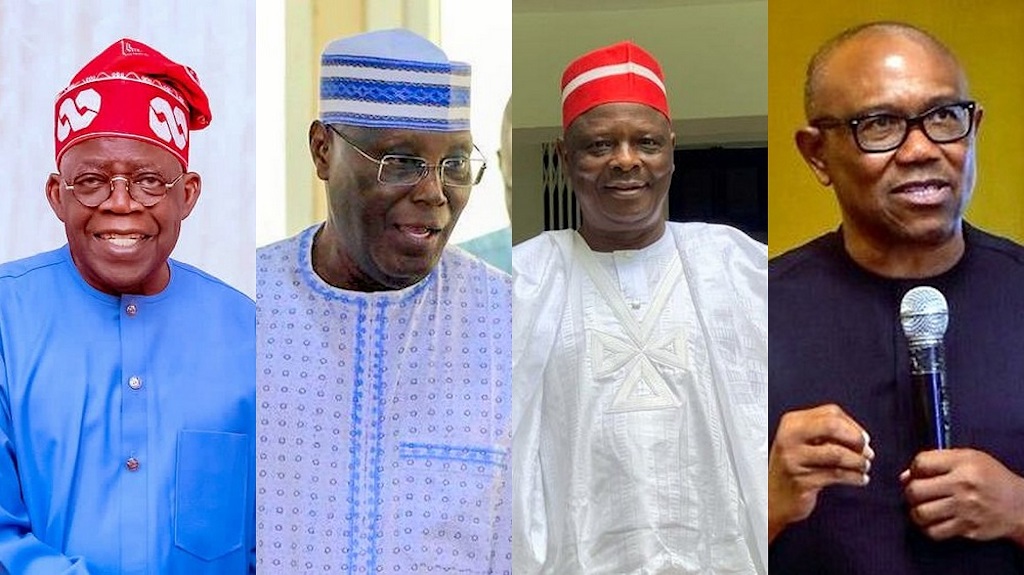
It is yet another moment of transition for Nigeria as the country goes to the polls in 4 days’ time to elect a new President and members of the National Assembly in what amounts to a seventh cycle of general elections since the country’s return to democratic, civilian rule in 1999. One President will be elected, President Muhammadu Buhari who became President on the platform of the All Progressives Congress (APC) in 2015, having completed his maximum two-term limit of eight years is not on the ballot. All the 109 seats in the Senate are up for election as is the case with all the 360 seats in the House of Representatives. The date of this first election is Saturday, 25 February.
The second general election is on March 11 for the election of Governors in 28 states and 993 members of State Houses of Assembly, both to be held in 8, 809 wards/registration areas across the country, 176, 606 polling units , overseen by about 1.4 million staff of the Independent National Electoral Commission (INEC), with a total of 93.4 million voters participating. INEC says there will be no election in 240 polling units due to security reasons, voters having tactically avoided the same polling units and having refused to register in the same units– in the North East – 67, South East – 64, North Central – 49, North West – 47, South South – 8 South West- 5. The cancellation of these 240 units without voters is a confirmation of how the challenge of insecurity is one major threat to Nigeria’s 2023 electoral process. The other threats include voter suppression, voter apathy, violence, vote buying, the turbulence arising from the scarcity of new naira notes and fuel, and the general apathy in the land further deepened by the high rate of inflation at 21.82%, unemployment – 33%, poverty, and the generally high cost of living.
Nigeria goes to the polls this week, tottering on the edge of the cliff. Days before the election, there have been reports of violence in parts of the country as a result of a naira re-design policy introduced by the Central Bank of Nigeria in October 2022, to address money supply issues, encourage a cashless economy, deepen financial intermediation, check illicit financial transactions and ransom payment for kidnapping and overall, to boost economic growth but that policy has now resulted in utter chaos. The new re-designed notes are not in circulation in the desired quantities, the return of old denominations of N200, N500, and N1,000 notes has been problematic, and on top of it all, depositors cannot have access to their money. On the eve of a general election, both the poor and the rich are lamenting that they can’t have access to money. The effect is that there have been direct attacks on banks across the country, Automated Teller Machines, and Point of Sales Centres (POS) have been set ablaze, including offices of the Central Bank. Many have died.
While the CBN claims that it has released new notes into circulation and that an otherwise necessary policy is being sabotaged by the political class looking for cash to buy votes and voters; opponents of the CBN’s policy question the timing of the policy and the difficulties imposed on the people. For many Nigerians, the big issue is not the election, but the politicization of the CBN’s policy on naira redesign. State Governors of the ruling party- All Progressives Congress have gone to court to sue the Federal Government, the CBN, and the President in two different suits. APC Governors and stakeholders are fighting their own government and openly disagreeing with their President. The opposition Peoples Democratic Party (PDP) has asked to be joined as co-defendants through AG Edo State and AG Bayelsa. Can you imagine members of the ruling party fighting their own government days to a general election, and the opposition supporting the President who belongs to the ruling party? The matter comes up tomorrow, Wednesday, February 22 at the Supreme Court, three days to the election as the apex court takes critical decisions if it would. It would prove to be a momentous moment in Nigeria’s 2023 electoral process, given the weightiness of the issues before their Lordships.
Tomorrow, assuming that all the suits have been properly consolidated with all joinders accommodated, and expecting that no one brings another red-herring to further delay the court and the process, their Lordships are expected to make pronouncements on a number of issues viz: (1) whether or not the apex court has jurisdiction to hear the matter in AG Kaduna and ors. vs AG Federation, as originally presented, (2) whether or not there is a dispute between the states and the Federal Government to warrant the apex court’s original jurisdiction; (3) whether or not the original matter should have been instituted at the Federal High Court and not the Supreme Court; (4) whether or not the President of Nigeria Muhammadu Buhari can, acting in the interest of public policy, tactically undermine the authority of the Supreme Court as he did in his national broadcast of Thursday, 16 February, when he ordered the CBN to continue to release old N200 notes till April 10, in flagrant violation of the extant Order of the Apex court of 8 February, reaffirmed on 15 February, to the effect that the status quo should be maintained until “the hearing of the motion on notice”. The Supreme Court is yet to hear the motion on notice. Will the Supreme Court “bark and bite” as it has been advised to do, in line with the rules established in State vs Solomon, Abacha vs Fawehinmi, Governor of Lagos State vs Ojukwu, and in line with Section 287 of the 1999 Constitution all of which affirm the supremacy of the order of Court, even if it is a nullity. And what would the Supreme Court have to say about those state Governors who have also similarly overruled the Supreme Court with the Governors in Kogi, Kano, Kaduna, Jigawa, Ogun telling the people in their states to keep spending the old notes whatever anyone says. In many of these states though, the re-designed old notes have lost both street credibility and legitimacy as the people opt to err on the side of caution.
The situation in Nigeria is further compounded, days to the election, by the scarcity of fuel, even if that is easing off. Nigerians are going to the polls this year, angry, hungry and confused. The only rabbit that has not yet been pulled out of the hat is some dubious persons going to court to secure a midnight, black market court injunction as was done in the past, to try to stop the election. Whatever happens at the Supreme Court of Nigeria tomorrow would say a lot about the courage, wisdom and integrity of the present apex court. What Nigerians can hold on to is the continued assurance by the President, Muhammadu Buhari that his administration is committed to seeing the elections through. Having given the same assurance repeatedly, he appears resolute and convincing. Ahead of the elections, he has told Nigerians that the government has the required security measures in place to protect the electoral process and defend the average Nigerian’s right to exercise his or her franchise. The President continues to send across the right signals on both the political process and the naira redesign policy, the ownership of which he has not shied away from, even if when he uses recent opportunities to campaign for the Presidential candidate of his party, the APC, many try to read meanings into the President’s campaign. Nigerians no doubt want to be given the opportunity to make a free choice in the 2023 elections and that they would be given a fair playing ground to do so. What President Buhari is expected to do, is to keep his promise in that regard, and ensure a smooth transition, and his job would have been done.
One other major positive factor as Nigeria goes to the polls is the confidence with which the electoral umpire, INEC, continues to reassure Nigerians that it is indeed ready for the polls, regardless of whatever challenges may have been thrown up in the course of preparations. Despite the scarcity of the national currency, the CBN says it stands firm by the INEC to ensure that any cash that is required for logistics and other payments is made available to guarantee successful polls. Between the last general elections in 2019 and now, more than 50 INEC facilities have been destroyed, attacked, compromised, set ablaze literally by unknown gunmen. INEC materials have been destroyed, generators carted away, permanent voters cards stolen, majorly in the Southern part of the country. There is no evidence of arrests or convictions. Yet, INEC says it is ready. Just like the CBN, INEC has also received the expression of support from the National Security Adviser (NSA), that the Inter-Agency Consultative Committee on Election Security (ICCES) has what it takes to protect the polls and the electorate. Hmm. Those who have expressed doubts about the capacity of the security agencies cannot be blamed. The security agencies are the weakest link in Nigeria’s preparations for the elections. Where were these same inter-agency stakeholders when unknown assailants attacked INEC facilities and locations? Why have they proven completely negligent in addressing the threats and reality of violence before the election? The default response in the circumstance is for the Nigerian state to call out soldiers, and in fact the military has also been overheard saying that they are ready for Nigeria’s elections. Hmm. We all need to be reminded ahead of Saturday that this is an election not war! Everyone is behaving as if Nigeria is going to war. Relatives are calling on each other to stockpile food. Many families, especially the privileged ones, have fled to safe havens across the border, in anticipation that Nigeria could descend into chaos. This must not end up as a militarised election.
The good thing about this country, however, is that there are many who are driven by sheer resilience and optimism. Those are the ones who will troop out on Saturday to vote no matter the odds. Since the last general election, a large population of Nigerians have come of age. Between the ages of 18 and 34, they constitute the bulk – more than 40% actually – of the voting population. They belong to the “Speak Out” (“Soro Soke”) generation that came into full reckoning in 2021 during the anti-police brutality #EndSars protests. They want to take their country back, and they constitute the backbone of what has become the Peter Obi movement under the platform of the Labour Party, which Peter Obi and his supporters have built from nothing into a strong force. Many of the persons within this demographic category may have been structurally disenfranchised, but their enthusiasm would be a major point of analysis when a post-mortem of the current season is done. To vote in this election, the Nigerian voter needs a PVC, the only means of voting identification and verification that is recognized by law and the much-acclaimed deus ex machina to Nigeria’s electoral problems called the BVAS – Bio-modal Voter Accreditation System. Sadly, many Nigerians on the voters’ register could not get their PVCs. This all-important item was found in drainage channels, in wrong hands, and in parts of the country, INEC officials made quick trade selling PVCs. Voters complained of frustration and ethnic discrimination. INEC continues to boast that the BVAS is error-proof and that having used it in off-cycle elections, Nigerians can be sure that answers have been provided for electoral fraud and over-voting. The question is – really? The same BVAS, the same technology, that is a matter of dispute in the 16 July, 2022 Gubernatorial election in Osun State? The least that INEC can do is to ensure that those Nigerians who have PVCs are able to vote without frustration, and that INEC technology back-end works and that the margin of human error is carefully managed. It goes without saying that a general election is far more complex and demanding than smaller scale, off-cycle elections.
All eyes are watching Nigeria. Oftentimes, Nigerians forget how important their country is, and so they act in an absent-minded manner, leaders and citizens alike. Nigeria is the most populous country in the Black world. It is the largest market in Africa. The country sits atop enormous natural resources, in the sub-soil, the sea-bed and the continental shelf. The country’s only problem is that it is populated by human beings who have failed to move with the times, beyond primordial, centrifugal tendencies. The world is watching and many are interested in Nigeria’s election because any form of disruption in Nigeria could have far-reaching implications and consequences for geo-politics. President Buhari was quoted recently saying that the international community must not intervene in Nigeria’s elections. That statement must have been poorly phrased because in 2015, the same President Buhari then seeking power and office had openly welcomed foreign interest in Nigeria’s politics. He has since corrected himself by playing host to the EU Observation Mission for the 2023 elections. The CBN Governor has even, most recently met with foreign ambassadors in the country. No country is an island unto itself. What we deplore is the grovelling, sycophantic, neo-colonial, ineffectual rush by Nigerian political candidates to places like Chatham House to seek endorsement. Nigeria will be in the news in a more intensive manner until the elections are won and lost. Certain foreign governments, including the US and UK have declared that any Nigerian politician that behaves in an unscrupulous manner will be put on their countries’ black list. We live under a rules-based international community. Politicians, beware, and indeed the politicians are the problem – their greed, selfishness, lack of patriotism and wickedness.
When all this is over and done with, the same professional political class that has been paying scant attention to the Electoral Act 2022, which was expected to be a game-changer and has so far not proven to be so, must learn that the rule of law should be obeyed. There has been no proven regard for the Peace Accords that the politicians signed. Peace must be allowed to prevail. Perhaps, Nigeria must begin to reconsider its system of government. The current Presidential system of government is too wasteful and indulgent. The way forward may well be a return to a parliamentary system of government or a hybrid of the presidential-parliamentary system. In the meantime, let every Nigerian of voting age, with a PVC go out to vote wisely. The future of this country lies in your vote.
Reuben Abati, a former presidential spokesperson, writes from Lagos.
You may like
-


This Sudan war is too senseless; time we ended it, By Tee Ngugi
-


Air Peace, capitalism and national interest, By Dakuku Peterside
-


This is chaos, not governance, and we must stop it, By Tee Ngugi
-


Off we go again with public shows, humbug and clowning, By Jenerali Uliwengu
-


How patriarchy underpins gender violence today, By Tee Ngugi
-


Help! There’s a dangerous, secret plot to save the EAC from imminent death, By Charles Onyango-Obbo
Strictly Personal
This Sudan war is too senseless; time we ended it, By Tee Ngugi
Published
2 days agoon
April 28, 2024
Why are the Sudanese Armed Forces (SAF) and the paramilitary Rapid Support Forces (RPF) engaged in a vicious struggle? It is not that they have ideological, religious or cultural differences.
Not that people should fight because of these kinds of differences, but we live in a world where social constructions often lead to war and genocide. It is not that either side is fighting to protect democracy. Both sides were instruments of the rapacious dictatorship of Omar el-Bashir, who was overthrown in 2019.
Both are linked to the massacres in Darfur during Bashir’s rule that led to his indictment by the International Criminal Court for crimes against humanity. They both stood by as ordinary, unarmed people took to the streets and forced the removal of the Bashir regime.
None of these entities now fighting to the last Sudanese citizen has any moral authority or constitutional legitimacy to claim power. They both should have been disbanded or fundamentally reformed after the ouster of Bashir.
The SAF and the RSF are fighting to take over power and resources and continue the repression and plunder of the regime they had supported for so long. And, as you can see from news broadcasts, they are both well-versed in violence and plunder.
Since the fighting began in 2023, both sides have been accused of massacres that have left more than 30,000 people dead. Their fighting has displaced close to 10 million people. Their scramble for power has created Sudan’s worst hunger crisis in decades. Millions of refugees have fled into Chad, Ethiopia and South Sudan.
The three countries are dubious places of refuge. Chad is a poor country because of misrule. It also experiences jihadist violence. Ethiopia is still simmering with tensions after a deadly inter-ethnic war.
And South Sudan has never recovered from a deadly ethnic competition for power and resources. African refugees fleeing to countries from which refugees recently fled or continue to flee sums up Africa’s unending crisis of governance.
Africa will continue to suffer these kinds of power struggles, state failure and breakdown of constitutional order until we take strengthening and depersonalising our institutions as a life and death issue. These institutions anchor constitutional order and democratic process.
Strong independent institutions would ensure the continuity of the constitutional order after the president leaves office. As it is, presidents systematically weaken institutions by putting sycophants and incompetent morons in charge. Thus when he leaves office by way of death, ouster or retirement, there is institutional collapse leading to chaos, power struggles and violence. The African Union pretends crises such as the one in Sudan are unfortunate abnormally. However, they are systemic and predictable. Corrupt dictatorships end in chaos and violence.
Tee Ngugi is a Nairobi-based political commentator.
Strictly Personal
Air Peace, capitalism and national interest, By Dakuku Peterside
Published
2 weeks agoon
April 16, 2024
Nigerian corporate influence and that of the West continue to collide. The rationale is straightforward: whereas corporate activity in Europe and America is part of their larger local and foreign policy engagement, privately owned enterprises in Nigeria or commercial interests are not part of Nigeria’s foreign policy ecosystem, neither is there a strong culture of government support for privately owned enterprises’ expansion locally and internationally.
The relationship between Nigerian businesses and foreign policy is important to the national interest. When backing domestic Nigerian companies to compete on a worldwide scale, the government should see it as a lever to drive foreign policy, and national strategic interest, promote trade, enhance national security considerations, and minimize distortion in the domestic market as the foreign airlines were doing, boost GDP, create employment opportunities, and optimize corporate returns for the firms.
Admitted nations do not always interfere directly in their companies’ business and commercial dealings, and there are always exceptions. I can cite two areas of exception: military sales by companies because of their strategic implications and are, therefore, part of foreign and diplomatic policy and processes. The second is where the products or routes of a company have implications for foreign policy. Air Peace falls into the second category in the Lagos – London route.
Two events demonstrate an emerging trend that, if not checked, will disincentivize Nigerian firms from competing in the global marketplace. There are other notable examples, but I am using these two examples because they are very recent and ongoing, and they are typological representations of the need for Nigerian government backing and support for local companies that are playing in a very competitive international market dominated by big foreign companies whose governments are using all forms of foreign policies and diplomacy to support and sustain.
The first is Air Peace. It is the only Nigerian-owned aviation company playing globally and checkmating the dominance of foreign airlines. The most recent advance is the commencement of flights on the Lagos – London route. In Nigeria, foreign airlines are well-established and accustomed to a lack of rivalry, yet a free-market economy depends on the existence of competition. Nigeria has significantly larger airline profits per passenger than other comparable African nations. Insufficient competition has resulted in high ticket costs and poor service quality. It is precisely this jinx that Air Peace is attempting to break.
On March 30, 2024, Air Peace reciprocated the lopsided Bilateral Air Service Agreement, BASA, between Nigeria and the United Kingdom when the local airline began direct flight operations from Lagos to Gatwick Airport in London. This elicited several reactions from foreign airlines backed by their various sovereigns because of their strategic interest. A critical response is the commencement of a price war. Before the Air Peace entry, the price of international flight tickets on the Lagos-London route had soared to as much as N3.5 million for the economy ticket. However, after Air Peace introduced a return economy class ticket priced at N1.2 million, foreign carriers like British Airways, Virgin Atlantic, and Qatar Airways reduced their fares significantly to remain competitive.
In a price war, there is little the government can do. In an open-market competitive situation such as this, our government must not act in a manner that suggests it is antagonistic to foreign players and competitors. There must be an appearance of a level playing field. However, government owes Air Peace protection against foreign competitors backed by their home governments. This is in the overall interest of the Nigerian consumer of goods and services. Competition history in the airspace works where the Consumer Protection Authority in the host country is active. This is almost absent in Nigeria and it is a reason why foreign airlines have been arbitrary in pricing their tickets. Nigerian consumers are often at the mercy of these foreign firms who lack any vista of patriotism and are more inclined to protect the national interest of their governments and countries.
It would not be too much to expect Nigerian companies playing globally to benefit from the protection of the Nigerian government to limit influence peddling by foreign-owned companies. The success of Air Peace should enable a more competitive and sustainable market, allowing domestic players to grow their network and propel Nigeria to the forefront of international aviation.
The second is Proforce, a Nigerian-owned military hardware manufacturing firm active in Rwanda, Chad, Mali, Ghana, Niger, Burkina Faso, and South Sudan. Despite the growing capacity of Proforce in military hardware manufacturing, Nigeria entered two lopsided arrangements with two UAE firms to supply military equipment worth billions of dollars , respectively. Both deals are backed by the UAE government but executed by UAE firms.
These deals on a more extensive web are not unconnected with UAE’s national strategic interest. In pursuit of its strategic national interest, India is pushing Indian firms to supply military equipment to Nigeria. The Nigerian defence equipment market has seen weaker indigenous competitors driven out due to the combination of local manufacturers’ lack of competitive capacity and government patronage of Asian, European, and US firms in the defence equipment manufacturing sector. This is a misnomer and needs to be corrected.
Not only should our government be the primary customer of this firm if its products meet international standards, but it should also support and protect it from the harsh competitive realities of a challenging but strategic market directly linked to our national military procurement ecosystem. The ability to produce military hardware locally is significant to our defence strategy.
This firm and similar companies playing in this strategic defence area must be considered strategic and have a considerable place in Nigeria’s foreign policy calculations. Protecting Nigeria’s interests is the primary reason for our engagement in global diplomacy. The government must deliberately balance national interest with capacity and competence in military hardware purchases. It will not be too much to ask these foreign firms to partner with local companies so we can embed the technology transfer advantages.
Our government must create an environment that enables our local companies to compete globally and ply their trades in various countries. It should be part of the government’s overall economic, strategic growth agenda to identify areas or sectors in which Nigerian companies have a competitive advantage, especially in the sub-region and across Africa and support the companies in these sectors to advance and grow to dominate in the African region with a view to competing globally. Government support in the form of incentives such as competitive grants ,tax credit for consumers ,low-interest capital, patronage, G2G business, operational support, and diplomatic lobbying, amongst others, will alter the competitive landscape. Governments and key government agencies in the west retain the services of lobbying firms in pursuit of its strategic interest.
Nigerian firms’ competitiveness on a global scale can only be enhanced by the support of the Nigerian government. Foreign policy interests should be a key driver of Nigerian trade agreements. How does the Nigerian government support private companies to grow and compete globally? Is it intentionally mapping out growth areas and creating opportunities for Nigerian firms to maximize their potential? Is the government at the domestic level removing bottlenecks and impediments to private company growth, allowing a level playing field for these companies to compete with international companies?
Why is the government patronising foreign firms against local firms if their products are of similar value? Why are Nigerian consumers left to the hands of international companies in some sectors without the government actively supporting the growth of local firms to compete in those sectors? These questions merit honest answers. Nigerian national interest must be the driving factor for our foreign policies, which must cover the private sector, just as is the case with most developed countries. The new global capitalism is not a product of accident or chance; the government has choreographed and shaped it by using foreign policies to support and protect local firms competing globally. Nigeria must learn to do the same to build a strong economy with more jobs.
EDITOR’S PICK
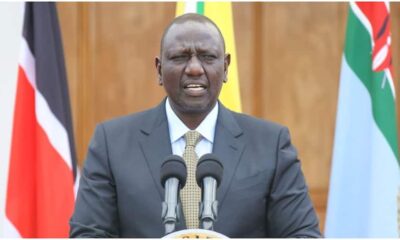

African leaders want record World Bank financing to address climate change
Ahead of a World Bank conference scheduled for later this year, African leaders on Monday called for rich countries to...
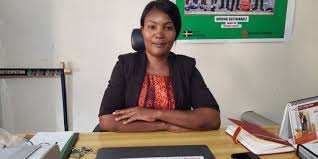

Conservationist, Kearns, names intolerance and digital media abuse as threats to media freedom
Nsama Kearns, the Executive Director of Care for Nature, speaks on the indispensable role of a free media in society....
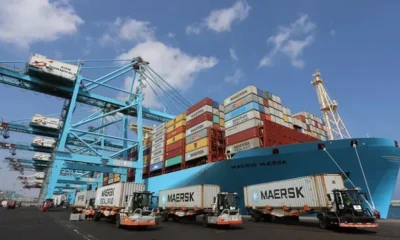

Nigeria gets $600 million investment from Danish firm Moller-Maersk
Nigeria’s presidency said on Sunday that President Bola Tinubu had secured an investment of $600 million from Danish shipping and...


Bolt Kenya teams up with M-KOPA to launch electric motorcycles
In a bid to improve driver earnings and combat climate change, ride-hailing platform, Bolt Kenya, has struck a partnership with...
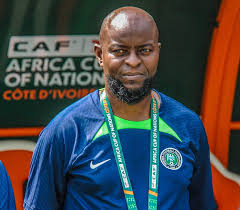

Nigeria’s football federation appoints Finidi George as Super Eagles coach
The Nigeria Football Federation (NFF) has approved the appointment of former international, Finidi George, as the new head coach of...
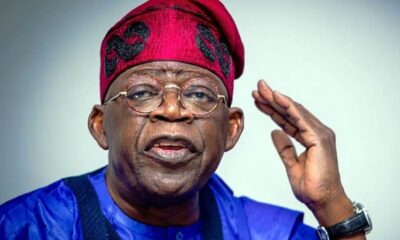

I saved Nigeria from bankruptcy by removing fuel subsidy— Tinubu
Nigerian President, Bola Tinubu, on Sunday, boasted that he saved Nigeria from going bankrupt by removing fuel subsidy on his...


Behind the News: All the backstories to our major news this week
Over the past week, there were lots of important stories from around the African continent, and we served you some...
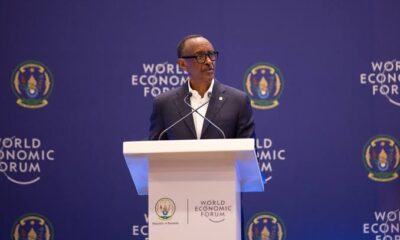

Video: How Rwanda is driving Ai revolution in Africa
In this video, the Managing Director of Rwanda’s Centre for the Fourth Industrial Revolution, Crystal Rugege, speaks on the country’s...


This Sudan war is too senseless; time we ended it, By Tee Ngugi
Why are the Sudanese Armed Forces (SAF) and the paramilitary Rapid Support Forces (RPF) engaged in a vicious struggle? It...
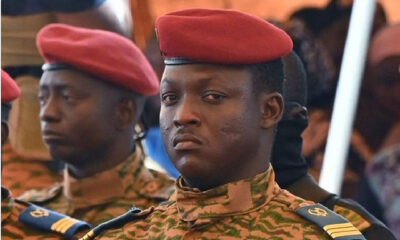

Burkina Faso investigating reports of northern killings
A government spokesman has revealed that Burkina Faso is looking into reports that 223 people were killed by the Burkinabe...
Trending
-

 Behind the News2 days ago
Behind the News2 days agoBehind the News: All the backstories to our major news this week
-

 Politics2 days ago
Politics2 days agoBurkina Faso investigating reports of northern killings
-
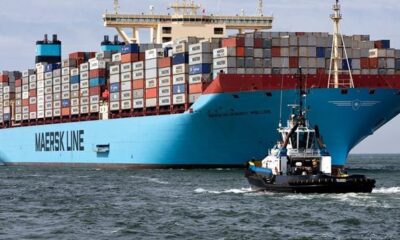
 Musings From Abroad2 days ago
Musings From Abroad2 days agoNigeria loses $9.2 billion to foreign shipowners
-
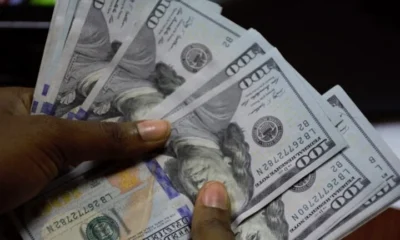
 VenturesNow2 days ago
VenturesNow2 days agoNigeria: Bureaux De Change operators to harmonise retail FX market


